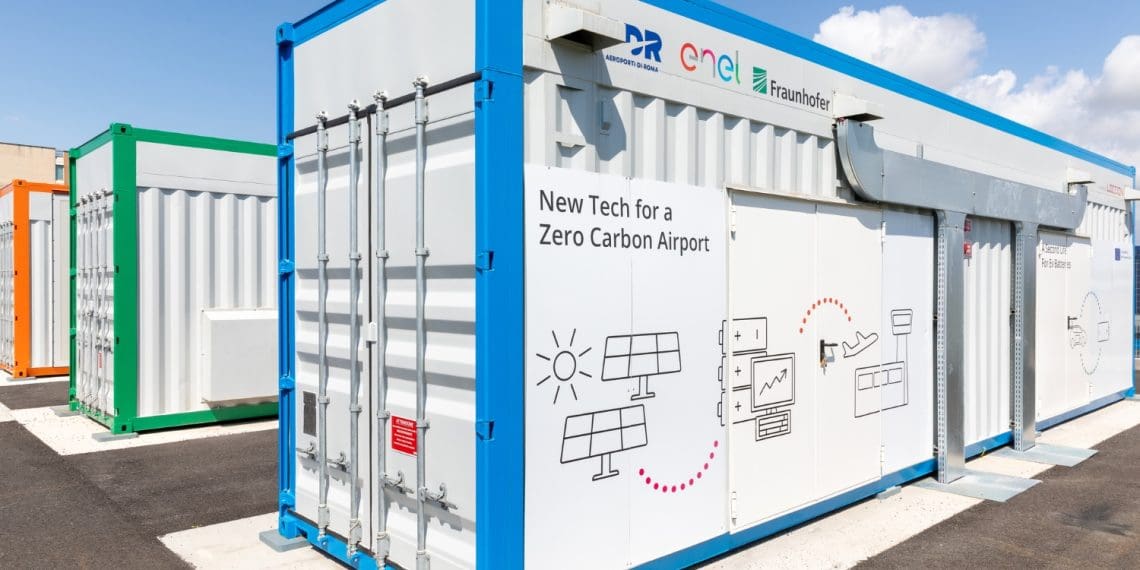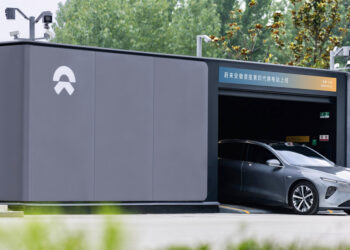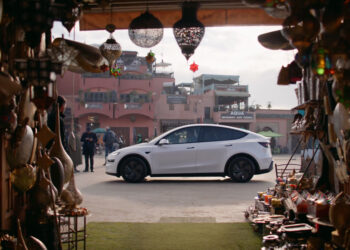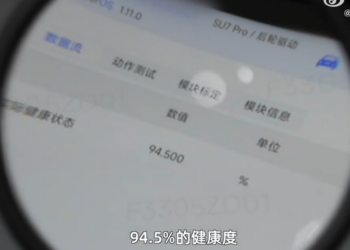Projects for the recycling of electric vehicle batteries continue to emerge all over the place. Now it was Nissan’s turn to announce that it is providing clean energy on a large scale through its contribution to a cutting-edge Battery Energy Storage System (BESS) for Fiumicino Airport, also known as Leonardo da Vinci International Airport, in Italy.
The initiative is from “Pioneer,” co-funded by the EU Innovation Funds, and is part of the airport infrastructure’s ambition to achieve net-zero emissions by 2030. It demonstrates the potential of “end-of-life” electric vehicle technology to provide clean and flexible energy beyond its use in vehicles.
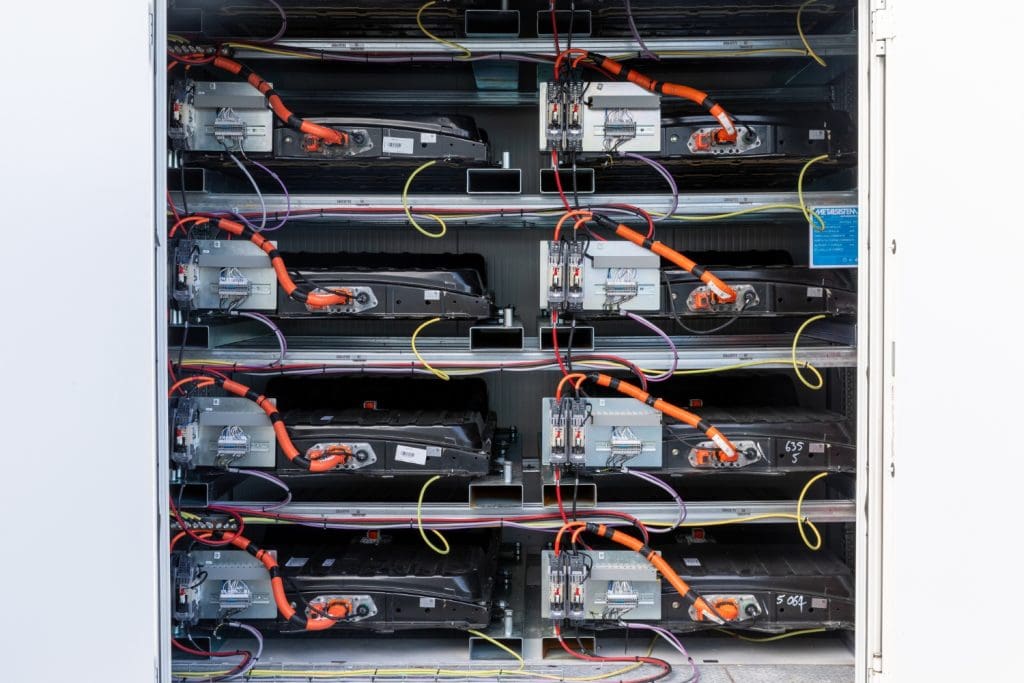
The system has a capacity of 10 MWh of electricity and includes 84 second-life Nissan Leaf batteries, totaling 2.1 MWh of energy storage.
This system is connected to a solar park of 55,000 solar panels that is expected to generate 31 GWh of renewable energy per year to provide reliable and clean energy to the airport terminals, as well as flexible services to the airport grid.
The reused batteries from Nissan Leaf are from Generation 3 of 30 kWh, as well as from Generation 4 of 40 kWh, sourced from high-mileage vehicles and warranty returns, and have been carefully refurbished to meet strict safety and performance standards.
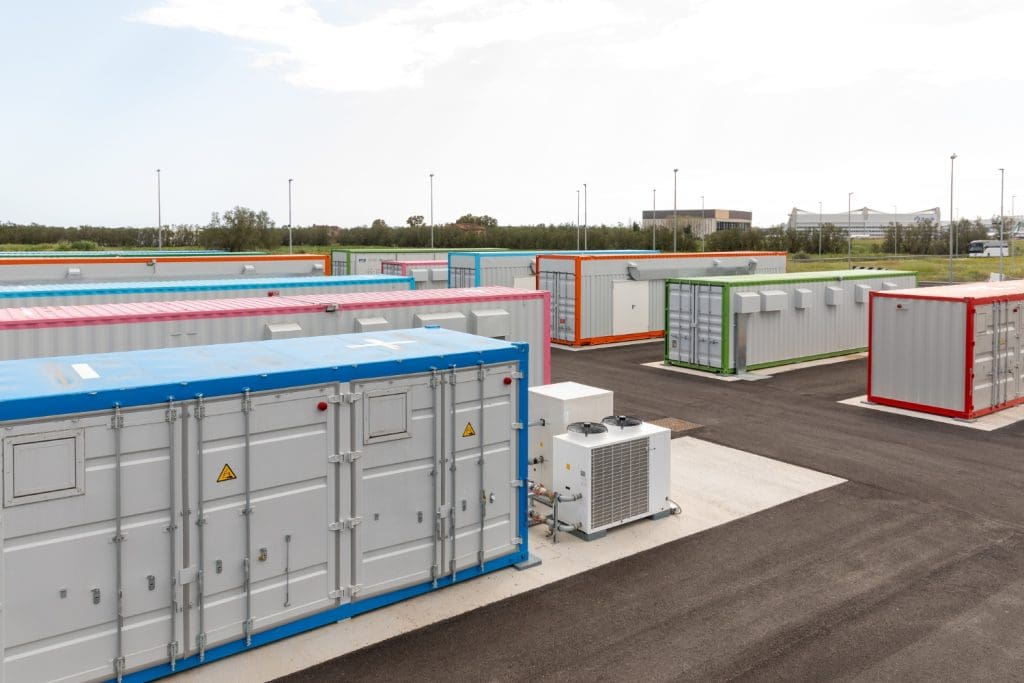
Nissan expects that the second-life batteries will remain operational for more than 6 to 7 years at the airport, even with daily use.
“This project not only demonstrates the long-term viability of reused electric vehicle batteries in demanding environments but also underscores Nissan’s commitment to the sustainable management of end-of-life batteries”, said Soufiane El Khomri, Nissan’s energy director for the Africa, Middle East, India, Europe, and Oceania region.

